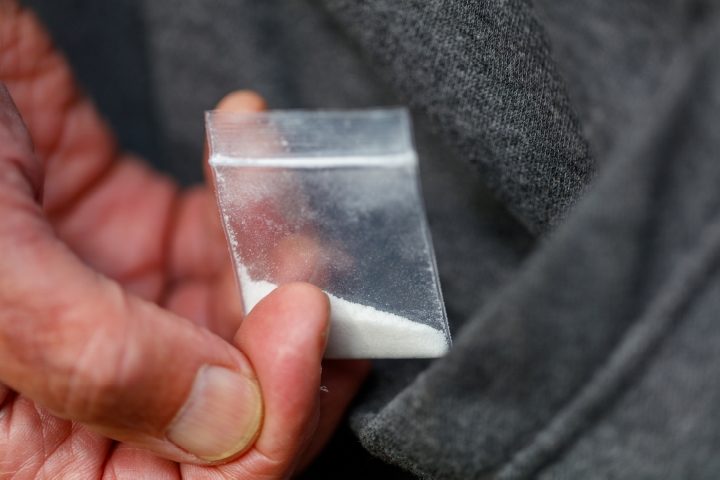
Are the voters in blue areas beginning to experience buyer’s remorse?
As seen in a new report by Politico, Oregon’s legislature this month voted (in a move expected to receive Democratic Governor Tina Kotek’s signature) to kill a three-year-old law decriminalizing drug possession for personal use. Once the new plan goes into effect, police will once more be authorized to arrest individuals caught in possession of drugs.
The decriminalization comes as overdose deaths in the state have soared since enforcement against drug possession was relaxed back in 2021.
Advocates of the original law argue the state is acting prematurely. Tera Hurst, the executive director of Oregon’s Health Justice Recovery Alliance, makes the case that the legislation was simply “not given the time that it needed.”
But the public and politicians are hard-pressed to argue with fatal overdose statistics. From the decriminalization laws’ passage in 2021 to October 2023, overdose deaths went up by nearly 50 percent — from 1,171 to 1,683. According to the Oregon Health Authority, most of these deaths were the result of opioid use, particularly fentanyl.
In addition, the homeless population in Portland, the state’s biggest city, rose to almost 6,300 in 2023 — a whopping 65-percent spike since 2015. These developments prompted the city’s politicians to enact a 90-day fentanyl emergency in January.
Upon announcing the emergency, Portland Mayor Ted Wheeler, a Democrat, said that fentanyl “wreaks havoc on the people in its grips, often rendering them lifeless on our sidewalks.”
He added, “It also begets violence among those who bring this deadly poison into our city. This devastation and trauma unfolds on the doorsteps of homes, businesses and in the streets, impacting nearly everyone in some way.”
The decriminalization law establishes a lax punishment of a mere $100 ticket for being caught with drugs — a fee that could be waived if a person called a hotline to get treatment. However, Oregon’s secretary of state says the hotline only got around 10 calls a month, meaning it was costing the state $7,000 a call to keep the line staffed.
Those who support the recriminalization maintain that they are not forsaking the public health-oriented approach that inspired the state to decriminalize drug possession. While the new bill will allow police to arrest individuals for drug possession, these persons will reportedly be able to avoid jail time if they accept treatment.
Representative Jason Kropf, a Democrat who worked on the bill, explained, “We have tried to create a system where law enforcement has the ability to intervene when they see something happening on our streets and confiscate drugs, but signal to our law enforcement and district attorney and court partners that we want people directed towards a behavioral health system and to treatment.”
The decriminalization originally came into being thanks to voters by means of ballot Measure 110, which gained 58 percent of the vote in 2020.
When the policy was advanced, it was compared to the system of Portugal, which decriminalized drugs in 2000 in response to high rates of overdose deaths in the 1990s.
Supporters of the Oregon drug decriminalization, who are dismayed to see the state end its experiment after just three years, say Oregon policymakers did not provide sufficient resources to ensure those struggling with addiction received the treatment they needed.
The ballot measure sought to enhance care for individuals grappling with addiction by earmarking approximately $150 million annually from the state’s cannabis tax revenue to enhance and broaden access to treatment. Oregon ranked at the bottom nationally in its ability to offer addiction treatment at the time drug possession was decriminalized.
But funding for additional treatment services was not allocated until approximately 18 months following decriminalization. The Oregon Health Authority, tasked with overseeing the allocation, had to navigate the implementation of the new law amid the pandemic while collaborating with volunteers from the substance use disorder recovery community to distribute grants.
Kassandra Frederique, the executive director of the Drug Policy Alliance, which funded Measure 110, argued, “One of the things that people miss in the conversation is the context in which this intervention is being played. It’s not like the state was doing great and the state got worse. The state had nothing.”
João Goulão, the official who has overseen Portugal’s drug treatment system since the 2000 decriminalization, also called the recent move by Oregon lawmakers knee-jerk.
“Above all, you have to be consistent in your approach and give it time to provide results,” he said. “When you’re taking on something as complex as the opioid crisis, you can’t really expect to see dramatic changes from one day to the next.”
Goulão went on to say that “For you to be able to claim something works, scientifically, you have to let it exist, you have to collect data, have it contrasted…. These things take time.”
Other Democrat-dominated jurisdictions are similarly scaling back their liberal drug and crime policies. For example, San Francisco voters this month approved a proposal to require screenings for people on welfare and mandate treatment for those found to be on drugs.

































 Reaction & Commentary
Reaction & Commentary

















